March 4, 2015 – In April, the State Bar of Wisconsin membership will choose a president-elect, who serves a one-year term before a one-year term as president, commencing July 1, 2016. Recently, legal writer Joe Forward conducted a Q&A with two president-elect hopefuls, Fran Deisinger and Kevin Lyons, both of Milwaukee.
Read president-elect candidate bios and platform statements:
See also our recent feature on the candidates, “Election Time: Meet Your 2015 Candidates for State Bar President-elect,” WisBar InsideTrack, Jan. 21, 2015.
Q: In this post-recession world, what do you see as the biggest challenge for the legal profession?
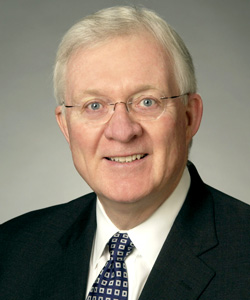 Lyons: The biggest economic challenge to the legal profession is competition from people and companies outside the profession using a combination of technology and advertising to suggest that solutions to legal problems do not require lawyers. They try to persuade the public that DIY is both cheapest and best.
Lyons: The biggest economic challenge to the legal profession is competition from people and companies outside the profession using a combination of technology and advertising to suggest that solutions to legal problems do not require lawyers. They try to persuade the public that DIY is both cheapest and best.
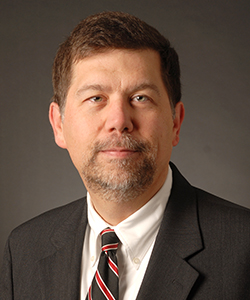 Deisinger: It’s the same as in the pre-recession world. The rise of the information age has fundamentally changed the provision of legal services. This cannot be overstated; it’s a change that has required every thinking lawyer to consider what we really do as lawyers, and how what we do can be valued. We are no longer the gatekeepers of the rules, able to charge a toll just for access to the heavy volumes on our shelves.
Deisinger: It’s the same as in the pre-recession world. The rise of the information age has fundamentally changed the provision of legal services. This cannot be overstated; it’s a change that has required every thinking lawyer to consider what we really do as lawyers, and how what we do can be valued. We are no longer the gatekeepers of the rules, able to charge a toll just for access to the heavy volumes on our shelves.
When simple web searches can put both the law and resources about legal problems at anyone’s fingertips, small firm lawyers find that they have no-and-low cost competitors that intercept many potential clients from ever knocking on their doors.
Bonus Questions
Q: In 12 words or less, describe your core philosophy?
Lyons: Service to others.
Deisinger: Put one step ahead of the other and eventually you’ll get there.
Q: I would love to meet …
Deisinger: … Neil DeGrasse Tyson, because I have a layman's fascination with science but I need to have someone explain the hard parts to me -- and that would take a scientist with a tremendous sense of humor.
Lyons: … Jeffrey Toobin.
Q: People may be surprised to know that I …
Lyons: … used to march as a clown in the great Milwaukee Circus Parade.
Deisinger: … have a very large collection of LP records (mostly jazz) that I still spin. Actually that’s probably not too surprising. What would surprise people is that despite my old school love for the vinyl sound I’m also tech savvy enough to have personally transcribed those records into lossless codec digital files so that I can access all that music in different rooms of my house via a wireless home server, and carry it on my phone so I can listen in the car.
Q: If I could go any place in the world, I would go to …
Deisinger: … Milwaukee, about 1940. I love my home town and its history and would love to have seen it in mid-century. I suppose I should say mid-20th Century now!
Lyons: … the Serengeti plains to watch the animal migrations.
Large firm lawyers face competition from entirely new businesses, like those that promise to mine terabytes of data far faster than in the document review rooms where young lawyers review files page by page -- a laborious process, but one that teaches them how to separate the wheat from the chaff to build a case. And all of us – government lawyers, private lawyers, judges, in-house lawyers – are subject to the complexity, cost and burden of electronic data collection, retention, privacy, and security. The recession exacerbated the financial effects of the information revolution on the profession, but even when the economy recovers we will still face this challenge.
Q: How can the State Bar best serve a membership with diverse needs and different challenges?
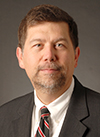 Deisinger: First, by assisting and empowering the diverse groups within the membership to bring their needs and concerns forward. The Bar then needs to listen and respond, in part by involving those constituents in the processes of the organization, such as the sections and committees, and encouraging their participation in governance.
Deisinger: First, by assisting and empowering the diverse groups within the membership to bring their needs and concerns forward. The Bar then needs to listen and respond, in part by involving those constituents in the processes of the organization, such as the sections and committees, and encouraging their participation in governance.
And while we all understand that there are limits to what a bar association financed by member dues can do for any individual or group, we should nevertheless embrace an organizational culture that tries to address any need identified by our diverse membership. An organization more than 100 years old should also have the humility to accept the possibility that the right answer in one era may be wrong in another, especially when the next era is so different.
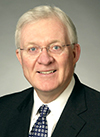 Lyons: The State Bar can best serve a membership with diverse needs and different challenges by meeting with minority bars and minority bar members to ask individuals about their needs and challenges and, with them, preparing and executing a plan to serve the members accordingly. The State Bar needs to ask diverse and minority members to work on issues that interest them, work with them, and support their efforts.
Lyons: The State Bar can best serve a membership with diverse needs and different challenges by meeting with minority bars and minority bar members to ask individuals about their needs and challenges and, with them, preparing and executing a plan to serve the members accordingly. The State Bar needs to ask diverse and minority members to work on issues that interest them, work with them, and support their efforts.
Q: How will you use your talents to lead as State Bar president?
 Lyons: I will ask State Bar members, members of the Board of Governors, and section leaders, and staff for their thoughts concerning the problems addressed in Questions 1 and 2 and concerning solutions to those problems. I will seek volunteer problem solvers and match them to their interests. I will communicate with other associations to learn how they have addressed questions of the future of the practice and how to ensure that associations reflect the populations their members serve. I will communicate with members on these topics via State Bar publications and State Bar events and invite responses from all. I will start a conversation among members and staff that I hope will be ongoing.
Lyons: I will ask State Bar members, members of the Board of Governors, and section leaders, and staff for their thoughts concerning the problems addressed in Questions 1 and 2 and concerning solutions to those problems. I will seek volunteer problem solvers and match them to their interests. I will communicate with other associations to learn how they have addressed questions of the future of the practice and how to ensure that associations reflect the populations their members serve. I will communicate with members on these topics via State Bar publications and State Bar events and invite responses from all. I will start a conversation among members and staff that I hope will be ongoing.
 Deisinger: To my knowledge, no one has ever accused me of being charismatic. I don’t think I’d be successful getting the troops to follow if I jumped on a horse and yelled “Charge!” while waving a saber. (I actually do have a saber, but that’s a different story and the Governors will be relieved to hear that I don’t bring it to meetings. I don’t have a horse.)
Deisinger: To my knowledge, no one has ever accused me of being charismatic. I don’t think I’d be successful getting the troops to follow if I jumped on a horse and yelled “Charge!” while waving a saber. (I actually do have a saber, but that’s a different story and the Governors will be relieved to hear that I don’t bring it to meetings. I don’t have a horse.)
Candidates for State Bar Treasurer (two-year term)
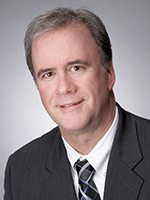 Timothy J. O’Brien of Bakke Norman S.C., New Richmond
Timothy J. O’Brien of Bakke Norman S.C., New Richmond
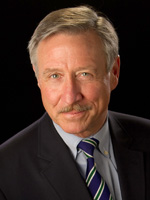 Paul G. Swanson of Steinhilber, Swanson, Mares, Marone & McDermott, Oshkosh.
Paul G. Swanson of Steinhilber, Swanson, Mares, Marone & McDermott, Oshkosh.
Candidates for Judicial Council (three-year term)
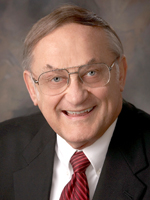 Thomas W. Bertz of Anderson, O'Brien, Bertz, Skrenes & Golla LLP, Milwaukee
Thomas W. Bertz of Anderson, O'Brien, Bertz, Skrenes & Golla LLP, Milwaukee
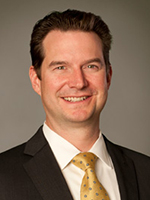 Joseph M. Russell of von Briesen & Roper S.C., Milwaukee
Joseph M. Russell of von Briesen & Roper S.C., Milwaukee
More Elections Info
Election ballots will be mailed no later than April 10, 2015, and must be returned by April 24, 2015. Persons elected will take office July 1, 2015.
Visit the 2015 Elections page for information about Division president-elect candidates and elections for the State Bar Board of Governors.
My approach is calmer: if I’m fortunate enough to be asked to lead people as smart and capable as the representatives selected by the membership and the experienced professional staff that has been serving the membership, then I think I should generally keep quiet and listen; listen for the best solutions and ideas, do my best to find consensus, then work to put those ideas into action.
I believe in the power of sifting and winnowing, and I believe a friendly room full of smart people best accomplishes that process, because people who respect and like each other can have the civil, fearless, and productive disagreements that reveal bad ideas and hone good ones, with no ego-bruising getting in the way.
Finally, as someone who already has led a bar association with thousands of members, I have the confidence born of experience to make an executive decision when it falls to me to do so.
Q: Is there a specific problem that you would address, or a specific goal that you would like to achieve as State Bar president?
 Deisinger: By the time I would be sworn in as president, I expect that other issues will have overtaken any agenda that I propose today. But here are several specific issues important to me:
Deisinger: By the time I would be sworn in as president, I expect that other issues will have overtaken any agenda that I propose today. But here are several specific issues important to me:
First, I want the Bar to devote useful attention to the economic dislocation affecting many newer lawyers. I hope that on reasoned introspection our profession can honestly conclude that good lawyering by good lawyers will always be vital to our state and our society. If so, we cannot afford a “lost” generation of lawyers.
Second, I want to make sure that the Bar listens carefully to the unique concerns of our government lawyers and nonresident lawyers.
Third, my professional background has given me a keen interest in our lawyer disciplinary system. That system is under intense scrutiny and pressure, especially from outside the profession. That’s fair, but the Bar must defend fairness for all participants in the process by carefully monitoring and measuring any proposed procedural or structural changes.
Finally, I believe the State Bar is uniquely positioned to advance the cause of justice. That can take many forms. If elected as your president, I will always support the State Bar assisting Wisconsin lawyers to do good works for our communities “off the clock” – and leading the charge for justice wherever it can.
 Lyons: If elected, I will address the problems of the future of the practice of law from professional and economical perspectives and diversity within the profession. My goal is to produce a plan to address these problems, submit it to the Board of Governors, and, if the Board of Governors approves the plan, begin implementation.
Lyons: If elected, I will address the problems of the future of the practice of law from professional and economical perspectives and diversity within the profession. My goal is to produce a plan to address these problems, submit it to the Board of Governors, and, if the Board of Governors approves the plan, begin implementation.
